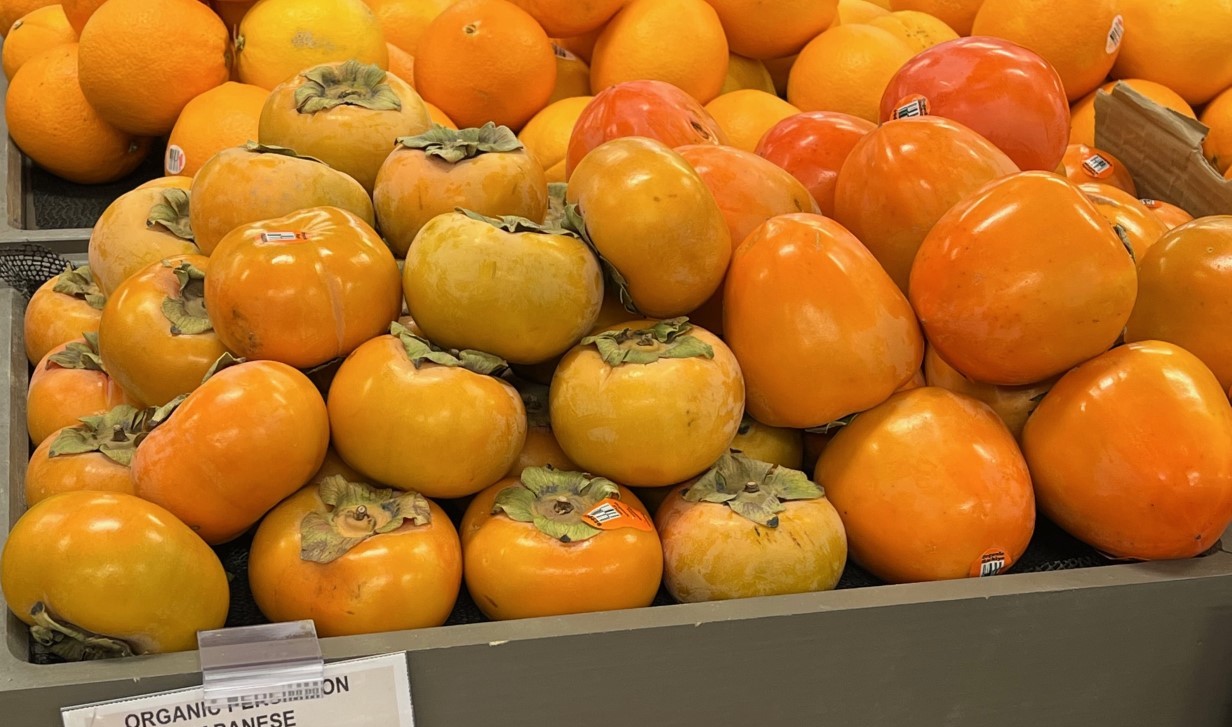和訳は英文の下にございます。/ The Japanese translation is below the English text.
The Harvest Moon
Table of Contents 1. The Harvest Moon 2. The Moon of the Thirteenth 3. The Moon of the Sixteenth 4. The Moon of the Seventeenth, Eighteenth and Nineteenth 5. The First of the Month
1. The Harvest Moon
Tomorrow is September 29th.
It is also August 15th in the lunar calendar.
The Full Moon on August 15th in the lunar calendar is the most important full moon in the year, so in this post we will discuss some interesting words expressing the moon.

The Full Moon on August 15th in the lunar calendar is called “Chuushuu no Meigetsu (The Beautiful Moon of the Lunar August)” and we make an offering to the moon and appreciate the harvest of the year.
It is originally a Chinese custom. Koreans also have a grand celebration on this occasion.
Our offering is a little different from our neighboring countries, and is typically a set of three items: A bunch of Japanese pampas grass to ward off the evil, fifteen round, sweet rice balls representing the Moon of the Fifteenth, and farm produce such as taro, sweet potatoes and chestnuts.
2. The Moon of the Thirteenth
In the lunar calendar, the fifteenth of the month is always the full moon night. So the Harvest Moon is also called the Moon of the Fifteenth.
Two nights before the Harvest Moon, therefore, the moon is called the Moon of the Thirteenth. Appreciation of the Moon of the Thirteenth(, sixteenth, seventeenth…) is unique to Japan.
The Moon of the Fifteenth is to thank for the harvest, and the Moon of the Thirteenth is to admire the beauty of the moon. In olden days, people thought they had to honor both occasions for good luck.
3. The Moon of the Sixteenth
The Moon of the Sixteenth is the moon one day after the Harvest Moon.
It has a beautiful name “Izayoi”, which means “hesitation” in the old Japanese.
The moon rises about 50 minutes later than the Harvest Moon. People likened it to a person hesitating to come out from her/his residence.
4. The Moon of the Seventeenth, Eighteenth and Nineteenth
Two nights after the Harvest Moon is the Seventeenth, and the moonrise is even later. People couldn’t wait and stood up to look for the moon, and called it “Tachi-Machi-Zuki”, the Moon to Stand and Wait For.
Three days after the Harvest Moon, people waited for it sitting as they relaxed. This moon of the Eighteenth is called “I-Machi-Zuki”, the Moon to Sit and Wait For.
Certainly they didn’t feel very excited after that day. They called the moon of the Nineteenth “Ne-Machi-Zuki”, the Moon to Lie Down and Wait For. It seems it was OK even if they fall asleep while they wait for the moonrise.
5. The First Day of the Month
Many of the words from the time of the lunar calendar, such as “Izayoi”, “Tachi-Machi-Zuki”, “I-Machi-Zuki, and “Ne-Machi-Zuki”, etc., are no longer used in everyday conversation.
These are more elegant words you would more often encounter in a letter, a poem, or a novel. Also you can use them as a reason to do your own moonviewing party.
However, “tsuitachi” is different. It is originated from the lunar calendar, but we use it everyday!
“Tsuitachi” means the first day of the month.
In the lunar calendar, the beginning of the month always falls on the new moon, and so the night is pitch dark.
They named this day “tsuitachi” meaning the day when the moon is going to appear.
“Tsui” of “tsuitachi” is considered as a sound change of “tsuki”, the moon. “Tachi” is the verb “tachimasu”, to stand up, and in this context means “show up”.
Note: “Tsuki” is the word for the moon, but you see a lot of “zuki” in this post. This is the result of a sound change which takes place when a word becomes a part of a compound word.
[End of the English text]
仲秋の名月
目次 1. 仲秋の名月 2. 十三夜 3. 十六夜 4. 十七夜、十八夜、十九夜 5. ついたち
1. 仲秋の名月
明日は2023年9月29日です。
旧暦では8月15日にあたります。
旧暦8月の満月は一年で一番大切な満月なので、この投稿では月をあらわすおもしろい言葉をいくつかご紹介します。
旧暦8月の満月は「仲秋の名月」といって、月に向かってお供えをし、秋の豊作に感謝するお祝いをします。もともと中国から来たしきたりです。韓国でも大きなお祝いをします。
お供え物はお隣の国々とは少し違いますが、魔除けの力があるススキで飾り、月見団子を15個、芋や栗などの農作物です。月見団子は、米の粉と砂糖で作った丸い甘いお餅です。
2. 十三夜
旧暦では15日はいつも満月です。それで、仲秋の満月のことを「十五夜」とも呼びます。
さて、十五夜の二日前の月を十三夜といいます。この十三夜(や十六夜、十七夜なども)は、日本独特の言葉です。
十五夜は月に豊作を感謝する日ですが、十三夜は月の美しさを愛でる月として、両方お祝いをしなければならないと昔の人々は考えていたそうです。
3. 十六夜
十六夜は、十五夜の翌日の月のことですが、この月には「いざよい」という美しい名がついています。
「いざよい」は昔の言葉で「ためらい」という意味です。
十六夜の月は十五夜より50分ほど遅れて上るので、家から出てくるのをためらっている人のように見えるところからついたのです。
4. 十七夜、十八夜、十九夜
十七夜は、十五夜の二日後の月。
上るのがさらに遅くなりますから、人は「早く出ないかなあ」と待ちきれずに立って待っているので、「立ち待ち月」と言います。
十五夜の三日後の月は、こちらものんびり座って出るのを待つので、「居待ち月」と言うそうです。
さらにその翌日になると、もうそんなにわくわくして月の出を待つこともなくなります。「寝待ち月」と言うのだそうです。ごろんと横になって待つ、まあ眠り込んでしまってもいいやという気持ちかもしれません。
5. ついたち
前述のいざよい、立ち待ち月、居待ち月、寝待ち月など旧暦を元にした言葉の多くは、現在日常会話に使う言葉ではありません。
手紙や詩や小説などで出会う優雅な言葉です。それからもちろん、自分がお月見をしたい理由にもなります。
しかし「ついたち」は違います。これも旧暦から来ていますが、今でも毎日使う大切な言葉です!
「ついたち」は、月の最初の日、という意味。
旧暦では、月の始まりはいつも新月で、夜はいつも真っ暗でした。
人々はこの日を「月が現れる日」という意味で「ついたち」と名づけたのです。
「ついたち」の「つい」は「つき」の音が変わったものと言われています。「たち」は動詞「立つ」で、ここでは「立ち上がる」「現れる」の意味になります。
[和文部終わり]




